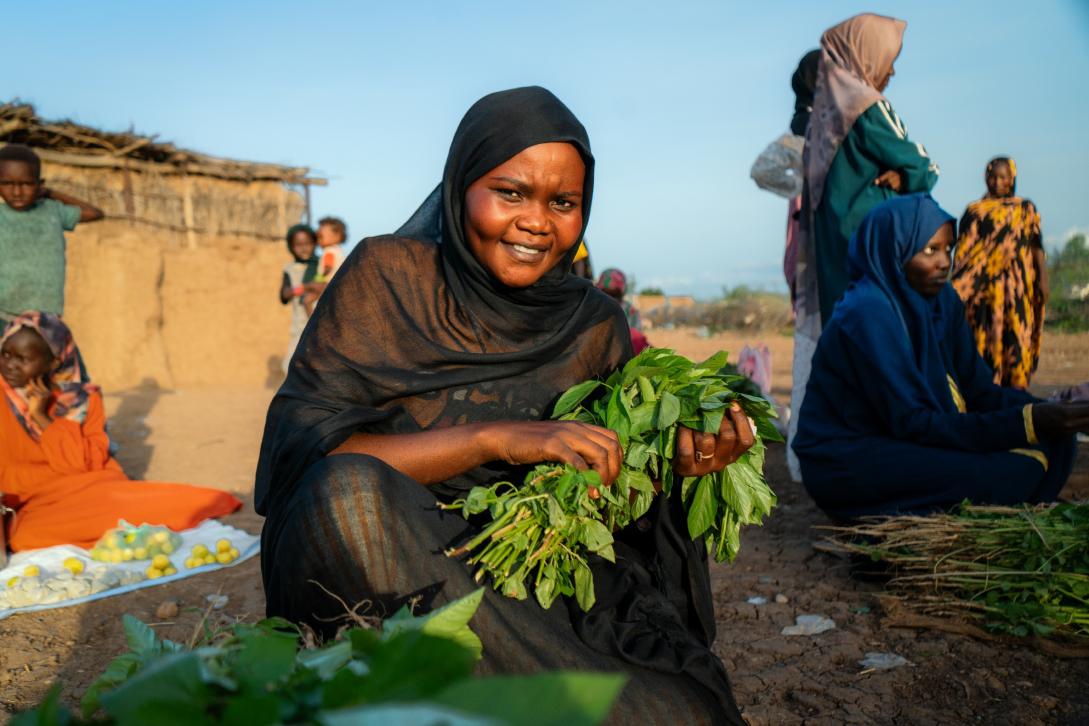Sudanese women rebuilding their lives in displacement

Women and children have paid a hefty price for the ongoing conflict. Thousands of women were uprooted with their children from their homes with no security, nowhere to go and no source of income. The continued violence, displacement and restricted humanitarian access have resulted in a severe food security crisis, with alarmingly high malnutrition rates among children and over 26 million people facing hunger. Famine has been confirmed in some areas, and the risk of famine looms across the country, putting millions of people at risk. Disease outbreaks, collapsing banking system, cash shortages and soaring food prices have only deepened the crisis.
With €26 million in support from the European Union, and further funding from other international donors, WFP has been at the forefront of the humanitarian response, delivering emergency food and income generating opportunities to thousands of women and girls to improve their income/economic status and ensure they can continue to access safe and nutritious food during the conflict.
Mawadah was a student at the Ahfad University for Women in Khartoum when the war broke out “I left Khartoum after the war. I returned home and began working with the community here.” Mawadah is one of the young people involved in the EU-funded WFP programme. She received training on income-generating activities such as baking and making crafts. Other women were also trained in making perfumes and farming to enable them to support themselves and their families.
“We make large quantities of baked products so that we have enough for ourselves and some to sell at the market. We used some of the money generated to rent a small land to farm, which we have since planted with peanuts and black-eyed peas,” says Mawadah, her voice filled with gratitude.
The programme has also helped communities establish a Savings and Loans fund for women, which Mawadah coordinates in her community. “Life can be difficult in a village,” she says. The fund provides crucial emergency support for vulnerable families and micro-loans for women starting small businesses.
Over the past few months, women and girls across Port Sudan, Kassala and Gedaref have benefitted from vocational skills training and access to women community centres to sustain their livelihoods. Their lives and those of their families were also significantly improved through the rehabilitation of local water points.
“We didn’t have an income before,” says Aziza, a young mother who has taken refuge in Kassala “now we are planting these vegetables and selling them in the market. They have now become a source of income for our families”
As women like Mawadah, Manahel and Aziza continue to try and rebuild their lives in refuge, the sounds of bullets and heavy artillery continue to reverberate around the capital city and many other parts of the country, signalling a war that is coming up to two years with no solution in sight. The EU and WFP will continue to stand with the Sudanese people as they navigate these increasingly difficult circumstances.
EU with the people of Sudan, Yesterday. Today. Tomorrow





